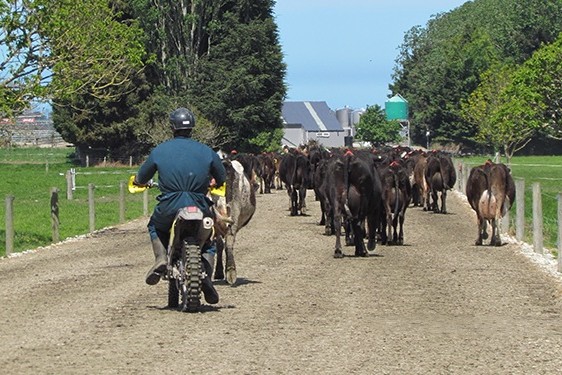Bob Edlin
Big lumps of money were announced in Budget 2019 for mental health services and suicide prevention, but farmers and rural communities must wait to find out how their wellbeing will be enhanced.
The Budget’s mental health package featured $445 million over the next five years to expand access and choice to primary mental health and addiction support.
Details of how this money will be spent have yet to be decided.
A Beehive staffer said much work remains to be done in designing and building “a substantial suite of services”.
But he said Agriculture and Rural Communities Minister Damien O’Connor has been reminding Health Minister David Clark of the need for more mental health support for farmers and in rural communities.
Dairy Exporter was told this after asking for details of any Wellbeing Budget plans with a special focus on the health of dairy farmers, particularly measures which address the high suicide rate among farmers.
The reply from O’Connor’s office was unspecific.
“Our rural-proofing policy ensures that challenges faced by the rural sector are considered when designing and implementing Government policy,” he said.
“This includes the mental health initiatives provided for in Budget 2019.
“The Wellbeing Budget has invested a record $1.9 billion into a Mental Health package – $20.8m of this goes to increasing access to mental health and addiction support over the phone and online.
“This will ensure that people in rural communities or more remote parts of the country have support available to them, no matter where they live.”
This suggests none of these health appropriations were tailored specifically for farmers/rural people in the mental health package.
Rather, those people will be able to share in and benefit from the general budgetary provision.
When we asked O’Connor’s office to confirm this, we were steered to the office of the Minister of Health.
Clark’s reply was similarly expressed in general terms:
He reiterated that $445m is being appropriated over the next five years to expand access and choice to primary mental health and addiction support.
“Over coming months the Ministry of Health will be working alongside District Health Boards, iwi, people with lived experience and local communities to design services that meet the specific needs of people in different regions,” he said.
“New Zealanders living in rural communities around the country will be actively involved in this design process.
“For example, the resulting services could include support for people to build skills and resilience to manage their own mental health if appropriate, or ongoing support through therapy or distance counselling for people who can’t make traditional appointments.
“I can say that reshaping our country’s future approach to mental health and addiction is no small task and will take some time.”
Federated Farmers in November last year called for a new approach to rural mental health after fresh data showed no decline in farmer suicides over the previous five years.
Provisional data from the Ministry of Justice then showed 20 farmers took their own lives in the year to June 30, 2018.
Eighteen of these deaths were men, five were in Waikato, the highest of any region, and six were aged 15-24.
Twenty-two farmer deaths were ruled suicide in 2013-14, 26 in 2014-15, 18 in 2015-16 and 22 in 2016-17.
Members of the Rural Health Alliance Aotearoa (RHAANZ) at the same time identified five critical issues impacting rural New Zealanders, along with specific calls to action for the Government. The issues were presented to Clark and O’Connor in a “Rural Health Road Map” which represented a united view from across the rural sector.
The document outlined “an urgent need to establish a definition of rurality as it pertains to health so that data can be collected and analysed in order to clearly identify the needs and health outcomes of rural New Zealanders”.
It also called for Government to ensure that it’s recently adopted Rural Proofing Policy (recognising the importance of rural communities and the challenges they face), is applied to all government processes – especially those relating to the health and wellbeing of rural communities.
Other issues impacting rural New Zealanders include the rural workforce crisis, a call to review funding models for health and wellbeing services and the need for a stronger focus on mental health in rural communities.





